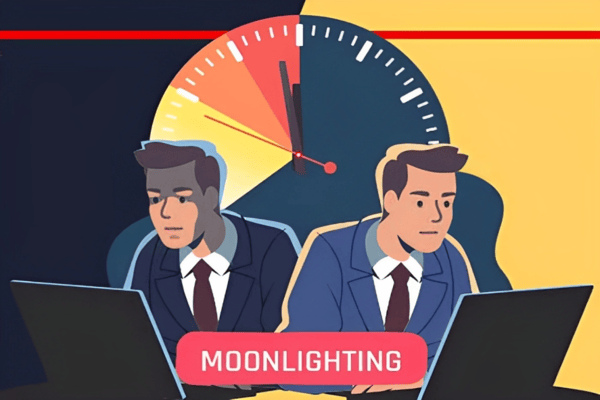Many Canadians are taking on side hustles to cope with rising living costs, with a significant portion doing so during work hours. According to a recent survey by Express Employment Professionals Harris Poll, nearly one in three (29%) Canadian workers admit to juggling a side gig alongside their regular job. Among these, 10% engage in it full-time, while 19% do so part-time. The primary motivations for these dual jobs include earning extra money to save and cover expenses.
The survey also revealed that almost half (45%) of job seekers believe employees should be allowed to work on side hustles during company time if their primary income isn’t sufficient for basic needs. Other motivations for moonlighting included the desire to acquire new skills (36%), gradually transitioning out of their current job (17%), enhancing existing skills (14%), and exploring new industries (10%).
A striking 87% of Canadian job seekers have engaged in a side gig at some point in their careers. The report suggests that the trend of side hustles during work hours could grow, as nearly 40% of job seekers indicated they would do so if they thought they could avoid getting caught. This sentiment is more prevalent among younger generations, with 41% of Generation Z and 47% of millennials expressing this attitude, compared to just 25% of Generation X and 28% of baby boomers.
Among those who have never worked a side hustle during company time, 23% are open to the idea in the future. Over half of job seekers believe employees should be allowed to pursue side gigs during work hours, provided it doesn’t impact their primary job’s productivity. However, employers are concerned about divided attention. Despite these worries, nearly half (49%) of Canadian companies lack a code of conduct addressing side hustles. About 51% of companies reported finding employees with side gigs, with 55% expressing concern over lower productivity, 47% about reduced focus, and 38% regarding decreased engagement.
These concerns are substantiated, as about a third of workers reported increased burnout due to their side hustles. Additionally, 28% noted less free time, and 25% struggled to balance their side gig with other responsibilities. A large number of workers are also unclear about their employer’s policies on side jobs, with half stating their company has no prohibitive rules, and 21% unaware if any exist. Only 29% knew of company rules against holding multiple jobs.
For companies that have discovered employees working side hustles, 64% have taken some form of action. Actions included asking the employee to limit side work to outside company hours (32%), issuing a verbal warning (30%), or requesting the employee to quit their side gig altogether (15%). Strict actions were rare, with only 11% of companies firing the employee, 5% reducing their salary, and 4% demoting them. The survey was conducted online by The Harris Poll on behalf of Express Employment Professionals, surveying 504 Canadian hiring decision-makers and 505 adults aged 18 and older.



